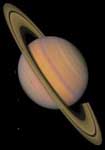
Section Four
To Reify Or Not To Reify?
"Das Nichts nichtet"
("Nothing noths")
Martin Heidegger
What would have had to have been the case if, infelicitously, 0 had existed or had been so, or, more radically and in a currently obscure and recast sense, actually is the case? This possibility is hard even to state meaningfully. This is because if there were literally nothing whatsoever, no properties at all, there likewise wouldn't be any meaning, reference or logic from which inferences could be drawn. Yet my hunch is that in this context:
- First, rather than involving a fallacy of reification (e.g. saying nobody
or nothing is here and then misconstruing such expressions as though they
denoted very peculiar kinds of thing with properties in their own right),
explicating the significance of 0 being the case, when "0" ceases to be
little more than a placeholder or proxy for something we don't understand,
will prove to be as vital to understanding why anything exists
as the originally highly vexed acceptance in mathematics of 0 as a number,
despite all the problems it brings philosophically. If so, then 0, it transpires,
is some sort of scale-invariant and ubiquitous principle. 0 and (the ultimate
universal wave equation or mathematical description of) The Theory Of Everything
will on this surmise prove strictly equivalent.
- Second, the properties of the Multiverse's superposition of existents
are derivable (but non-provably; there are interesting Gödelian complications
here, since there is no "outside" from which the complete derivation can
even notionally be provably exhibited) from a decomposition or decoherence
of the properties of the state of 0 in the same way as the existence of
any given number allows, indeed strictly necessitates, the potential derivability
from its properties of all the other numbers. On this sketch of an explanation
space, such derivability will ultimately resolve the paradox of at once
"everything and nothing" co-existing i.e. the universal conserved constants
cancelling out to precisely 0 and yet the concomitant existence of (an Everett-inspired
posit of) a maximal superabundance of outcomes. In a (as yet cognitively
inaccessible) rigorous, technically defined sense, nihilism and plenism,
it is here proposed, are to be taken as physically and logico-mathematically
equivalent. [Is the "expansion" (-contraction?) of the Universe, and
all values of the (ultimate and unique?) variable what-it's-like-ness itself
(aka "qualia"; see below), an expression of the (de)composition or (de)coherence
of 0? Is this true of Linde's so-called eternal chaotic inflation?]
- Third, if it is/had been the case that, infelicitously, nothing had existed/is/were
the case, there would be nothing to explain, and no seemingly unblockable
infinite regress of explanation to deal with. It's the failure of this intuitive
default-state which opens up the impossible regress of explanation. But
if, in an imperfectly explicated sense, a zero ontology exists/is the
case, or rather there is something analogous to what would satisfy our (mis-)conceptions
of what zero amounts to which is the case, then perhaps there is
nothing to explain in a deeper sense than a bad pun (This does indeed gives
the notion of a "vacuous" explanation a new twist). The world's apparent
plenitude is, on this construal, the minimal default-condition necessary
for 0 properties actually to obtain - and its description is intersubstitutable with
0. Only (impossible) departures from such a default-condition would stand
in need of explanation. There aren't any departures, so they don't. Nevertheless,
it's the nominal possibility of their existence that renders the proposed
principle empirically falsifiable. A single uncancellable and underivable property sinks
the entire research program.
- Fourth, the implications of a zero ontology promise to make a (recast) platonism ontologically respectable. Consider the properties pi, the ratio of the circumference of a circle to the diameter. Platonists note that if it is possible to encode all the information that makes up a particular human being, even if this involves 10 1,000, 000s of bits of information, then this sequence must crop up - and crop up an indefinitely large number of times - in the sequence of digits expressing the value of pi. This idea might seem fanciful. And no one pretends our existence is explained by the properties of pi. But if zero is strictly and literally the case, then this whimsical notion must be transposed into something hugely more powerful and fertile. For in the zeroist paradigm, we are all entailed, logically and physically and phenomenologically, by the properties of zero. Our inexistence would be logically incoherent.

